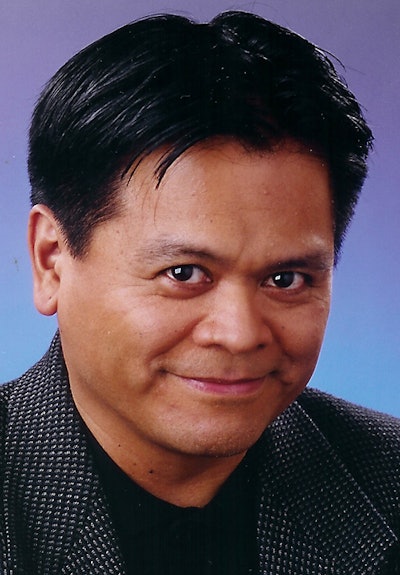Most of us are realizing the consequences of an inadequate public health response to the coronavirus, a/k/a COVAD19.
When an inordinate amount of budget monies are given to the military, we leave ourselves open to other enemy fronts like disease and illness. Not enough tests, not enough information, not enough knowledge leading the fight. Is the private sector stepping in? Not fast enough.
In the meantime, everyone is in the same boat trying to find answers in order to protect themselves, and their way of life. By now, you know the virus is like a bad cold approaching pneumonia. It’s a killer. And it’s spreading across the U.S. If you have a cold or some sort of virus, if not the actual coronavirus, a mask will prevent you from spreading your germs. But masks won’t keep you from getting the germs. It’s not reassuring when the best thing you can say is drink fluids and wash your hands.
 Emil Guillermo
Emil GuillermoPeople who have travelled to known places of the virus should get tested. But the rest of us? This is where a president comes in. And this one’s response to coronavirus is about as scientific as his response to climate change. It may just go away, he says. “We’ll see what happens,” is his stock phrase. Could get better or worse, he says. Does he care?
Only about the stock market, and you can see how that’s whiplashing. So into the unknown we go—even higher ed. Maybe this is an opportunity for more of higher ed to further explore something innovative in curriculum—like on-line learning. Some of you have ridden the tech train to great results. But others have been slow to adapt. Tech isn’t just the province of the for-profit private institutions that are favored by Education Secretary Betsy DeVos. Nor is tech about on professional development, self-improvement, and hobbyist lifestyles.
It’s for everything we teach in a university setting. And when the president of my university to which I serve as an adjunct sends out a letter saying it’s our responsibility to make sure we can teach in a continuous uninterrupted fashion, that’s a signal that we can no longer ignore the tech. Teaching online through tools like Zoom and others are not just cool toys. They’re real tools of modern education and the students know it, but it’s still not fully embraced by the generation that remembers the library catalogue file.
Now learning is a matter of life and death. Too extreme? OK , then how about just public health. It’s being forced on all my colleagues, some who may have been reluctant, to get on board, and it’s about time. I’ve known the power of digital learning from listening to podcasts and audio books.
But I’ve also used sites like Udemy, Master Class, and Creative Live. All of them digital schools to learn everything from shooting a basketball to photography. The hold outs have all been those who put a value on in-person connection. Is that better than being able to stop and repeat a lecture at will? To go over a video and memorize facts and concepts. The repetition assures learning. But is it rigorous enough or worthy of the academy?
Some would say the students leave with more retainable information through the digital connection. I know it can work with the hobbyist and professional training sites. But just recently I took a class given by Cornell University’s eCornell site. If an Ivy can do accredited online learning, we all can. I’m still taking the set of three courses on plant-based nutrition, and it’s really opened my eyes about the use of digital environment for learning at a high level. And it’s made me think of how the next time I teach my course on diversity, I could apply the same learning techniques on my students.
Let’s face it. Learning isn’t about entering in engaged conversation while standing in togas. It’s the changing world of teaching a younger generation already well attuned to technology. Coronavirus fears have resulted in some unintended positive consequences.
The reduction in pollution in China because industry has shut down and people have stayed home is one. Another may be the conversion of a generation in higher ed to the great digital tools that can enhance–and in times of distress–become the entire learning process.
Emil Guillermo is a journalist and commentator. He writes for the Asian American Legal Defense and Education Fund. You can follow him on Twitter @emilamok






















